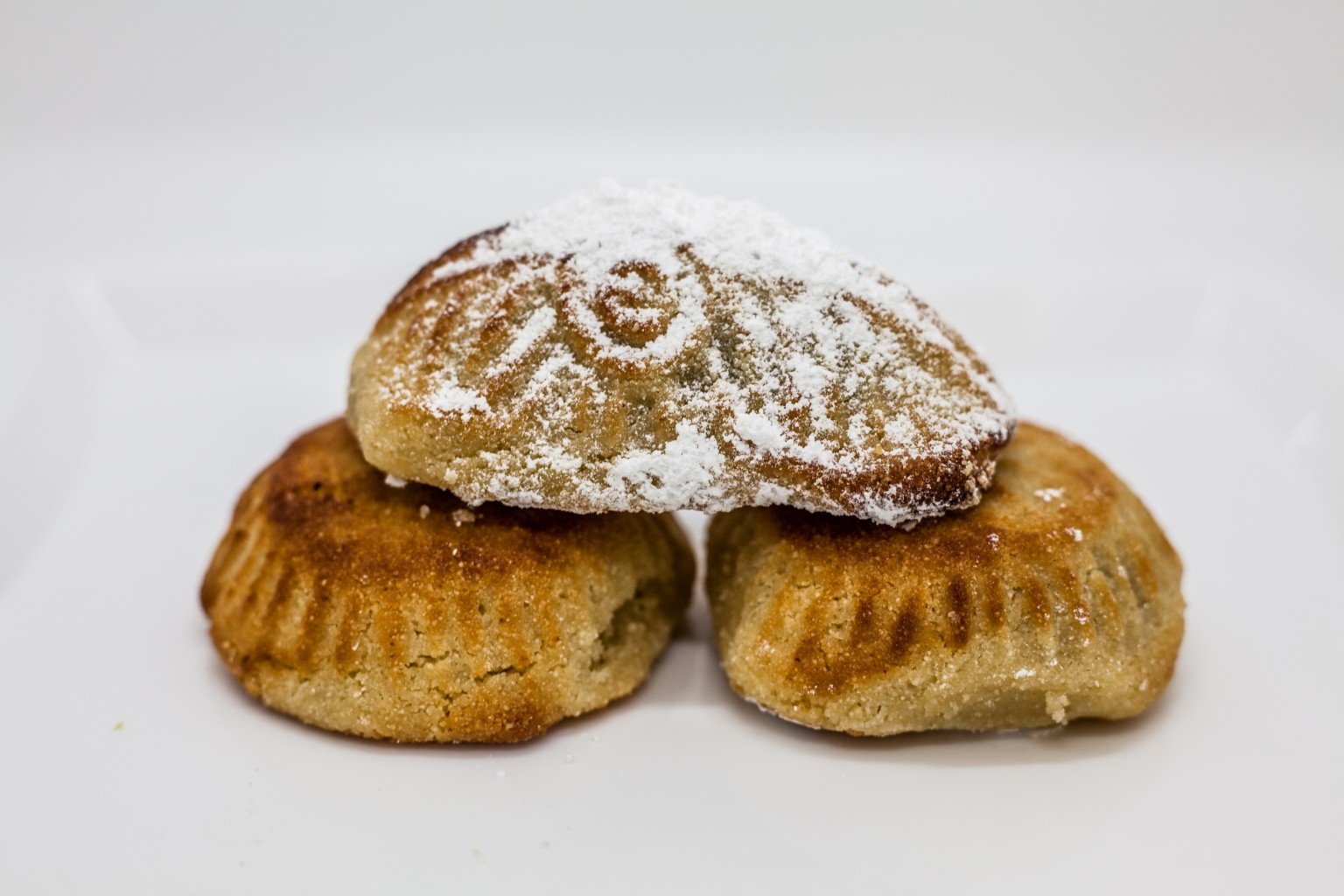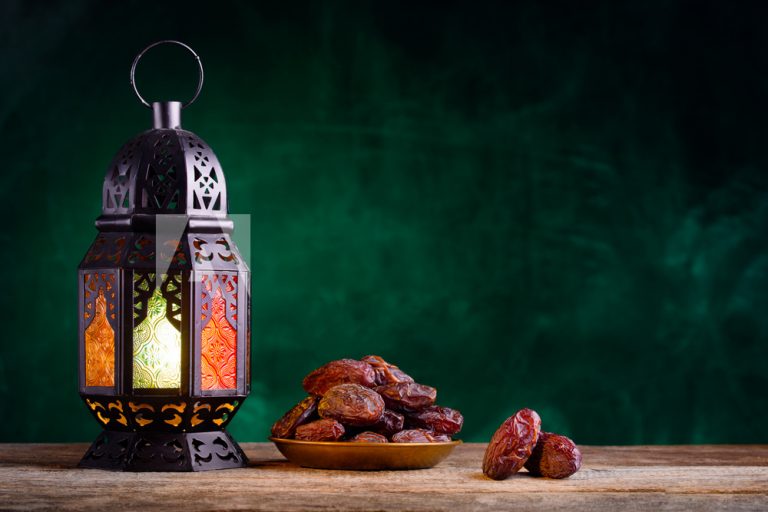Be it Easter or Eid, holidays in the Levantine region of the Middle East are incomplete without a shortbread cookie called maamoul. Stuffed with date paste or chopped walnuts or pistachios, and dusted with powdered sugar, these buttery cookies are the perfect reward after a month of fasting during Ramadan or Lent.
The dough is made with wheat flour or semolina (or a combination of the two), then pressed into special molds, traditionally carved in wood. And the fillings are fragrant with rosewater or orange blossom.
Traditionally carved wooden molds are used to give shape and form to the maamoul cookies.
In the weeks leading up to Easter, the King of Baklava operation becomes a veritable factory of maamoul. Owner Bass Ahmad dips pitted dates into rosewater, then passes them through a meat grinder to make a paste. He sorts through pistachios making sure that neither a speck of shell nor single shriveled pistachio makes its way into their renowned cookies. Once all ingredients are ready, a pinch off balls from their mountain of semolina dough takes shape the dough balls into small cups which they stuff with either date paste, pistachios or walnuts.
Each stuffed dough ball presses into an antique wooden mold, which he thwacks against a wooden stump to toss out a perfectly formed cookie, ready to be baked. In a matter of minutes, he prepares dozens more.
“I also make maamoul in the winter, but it’s a must for Easter” says Bass. In a country where many Christians give up dairy, sugar and meat during Lent, the 40-day period of penitence, the luxurious cookies are a welcome reward at Easter.


